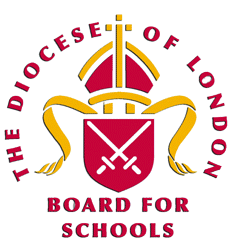RE at St Matthias aims to encourage our pupils to live well together, in dignity and respect, by exploring different religious beliefs and practices in communities across the globe. Our progressive and enquiry-based curriculum challenges our pupils to use their knowledge, understanding and critical analysis skills to explore life and human experiences. Our curriculum is planned to foster mutual understanding, respect and compassion between pupils of differing religious and cultural backgrounds. We aim for our pupils to become religiously literate members of society, studying Christianity as a living religion. Our curriculum provides each child the opportunity to flourish and live life in all its fullness.
Religious Education at St Matthias
RE is an integral part of the school curriculum offered at St Matthias and is taught as a core subject, with weekly timetabled teaching slots and sessions allocated to ensure good coverage and a clear progression of skill. Christian values and concepts make up approx. 66% of the year for all year groups, with the remaining 33% of the time allowing for a focus on 2 world religions and world views a year. Children are able to build a strong understanding of commonalities between faiths and can also understand how each religion is different through the use of a range of rich and varied RE strategies developed by the London Diocesan Board for Schools (LDBS). Links are made in all of the RE curriculum to Spiritual, Moral, Social and Cultural development. Christianity is taught as a living faith, with both a focus on its impact on British culture and how it varies across the world. Other world religions and views are taught in a way that enables pupils to express their ideas and insights, developing and enriching their understanding of the different communities around us. RE is also covered via weekly church services and through RE weeks, where a greater range of topics can be covered and child-led inquiry can occur.
A key aim of the RE curriculum at St Matthias is to ensure that children become religiously literate and so an important feature of RE lessons is Bible analysis, where cross-curricular skills can be applied when learning new topics or revisiting key themes. Through our systematic enquiry-based approach to the teaching of RE, children can become more critical thinkers, can engage more critically with texts, can ask deep and meaningful questions, can make connections within and across religions and can reflect, respond and express their own religious, spiritual and philosophical beliefs. In line with other core subjects, RE is also regularly assessed using the LDBS assessment tools and children self-assess using frontispieces provided for each topic. These allow both the children and their teachers to understand gaps in knowledge or key concepts and more easily fill them during RE days.

EYFS
In the Early Years, RE is taught via stories and celebrations. Parallels are drawn between different religions and children observe and participate in a range of festivities, while building their understanding of Christianity. While the overarching themes are focusing on Christianity, other world religions are included so that children can understand the similarities, with teachers working hard to ensure all communities are reflected over the year.
KS1 and KS2
The curriculum for teaching and learning about religions across the school is challenging and robust, incorporating a range of diverse experiences and worldviews. All lessons include a link to our school values and aim to answer a ‘big question’ with answers that the children can continually build on throughout the week and across a half term. A range of resources and props support and enhance lessons by providing concrete examples for hands-on learning and visitors are regularly welcomed to give first-hand experiences of different worldviews and religions.

We live in a multi-faith, multi-cultural and multi-racial society and work hard to ensure our RE teaching nurtures the respect and understanding of different faiths, world views and cultures within the community in which we live.
We do this by:
- Ensuring that pupils flourish through the provision of high-quality RE, reflecting the Church of England Statement of Entitlement (February, 2019).
- Providing learning activities that fully meet the needs of all pupils.
- Helping the pupils to develop knowledge and understanding of religion and faith by providing a safe place to explore their own religious, spiritual and/or philosophical ways of seeing, living, believing and belonging.
- Furthering pupils’ growth and development through the study of beliefs and values of Christianity and other faiths in line with our distinctively Christian visions.
- Contributing towards pupils’ experience and understanding of Christianity as a living faith through critical engagement with Biblical text.
- Providing clear guidance for continuity and progression in the teaching of Religious Education throughout the school ensuring that skills such as enquiry, analysis, interpretation, evaluation and reflection are developed.
- Promoting the Spiritual, Moral, Social and Cultural development of children across a rich and creative curriculum (see SMSC policy).
- Valuing the religious background of all members of the school community so that children can share their own experiences with others freely in a safe and respectful environment.
- Valuing the appropriate links that can be made between home, school and faith
- Introducing pupils to a range of relevant disciplines; including theology, philosophy and the human and so cial sciences
LDBS RE Curriculum Overview.docx
Our school values the importance of being a Church school with morals and values that support and promote the children’s learning, morally, academically, socially, and emotionally. We have a Christian values system which promotes the values of service, love, justice, and endurance and we seek to serve and engage with the local and global community, developing ever-growing links with the Church and the wider community. We strive to ensure that we provide a caring, inclusive and thoughtful school that serves the local community and supports our children equally.
